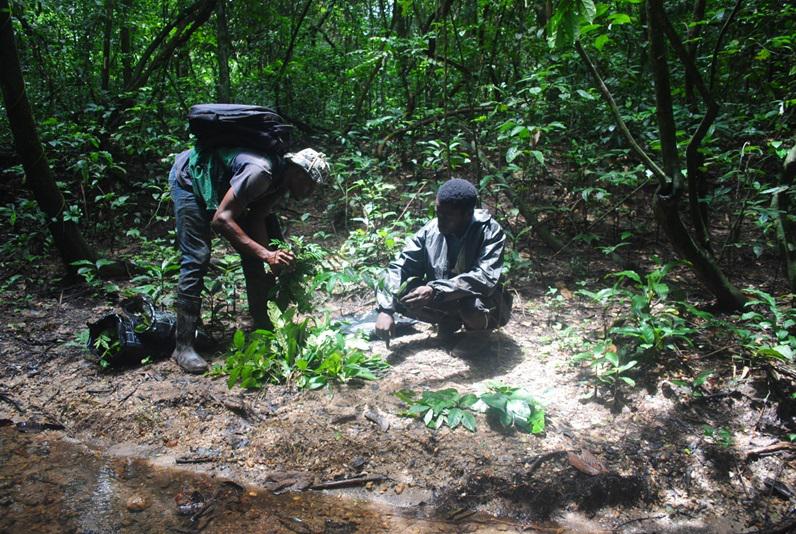Social media videos featuring the project and article on Facebook.
Elephant Conservation Outreach at OFR, Elephant Conservation Outreach at OFR 2
27 Feb 2017 Omo Forest Reserve, Nigeria, Africa Communities | Elephants | Mammals
Participatory Survey and Conservation of Endangered Savannah Elephants of Kamuku and its Environment, Nigeria
Understanding Movement Patterns and Resource Needs of Kamuku Elephants Along Migration Routes in Nigeria
Spatial Distribution and Conservation of Forest Elephants (Loxodonta africana cyclotis) in Southwestern Nigeria
Strengthening Monitoring Systems for Adaptive Management and Protection of Forest Elephants in Omo Forest Reserve, Southwestern Nigeria
The project is scaling up the study and conservation of elephants in Southwestern Nigeria. The present endeavour will help establish patterns of utilization of both cultivated and non-cultivated plant species by elephants, taking into account seasonal variation in the project site. The implications of the feeding patterns for crop-raiding activities by elephants in surrounding farmlands will be examined. The project will further promote public understanding of the precarious situation of the remaining forest elephants through community education and support. In addition, conservation facilities in the project area will be rehabilitated so as to enhance the status of the forest elephants.

Omo forest reserve is one of the few elephant ranges in Southwestern Nigeria. However, anthropogenic activities including logging, farming and hunting have led to habitat fragmentation and direct assault on elephant population in the area. The population of elephants is small and knowledge of their foraging patterns, which is important for understanding their habitat requirements and for assessing their habitat condition for effective management in the area is lacking. Therefore, the project will help establish patterns of utilization of both cultivated and non-cultivated plant species by elephants, taking into account seasonal variation in the project site. The implications of the feeding patterns for crop-raiding activities by elephants in surrounding farmlands will also be examined. Given the incidence of conflict between humans and elephants in several of the elephant ranges, there is also need to continue promoting public understanding of the precarious situation of the remaining forest elephants in the project area and to seek community-level support for their protection. Furthermore, there is need to revitalize a number of conservation facilities so as to enhance the status of the elephants and conserve their habitats within the project site.
The project will provide useful information on foraging patterns and other data for elephant habitat management in the project area. The project will help indicate the diversity of elephant food and their preferences in different seasons within the project area. It will also show the correlation between availability of plants and preference by elephants. The relative importance of the different plant species in the diets of elephants in the area will also be established. This will help improve seasonal management for the long-term protection of this endangered species and its shrinking habitat. The implications of the feeding patterns, food availability and preferences will go a long way in mitigating crop-raiding activities by elephants in surrounding farmlands.
Information obtained from the study will also aid elephant conservation in respect to the restoration of their habitats, and will thereby contribute towards minimising human–elephant conflict. Community-based conservation education will help stimulate increased environmental sensitivity towards the forest biodiversity. It will also raise awareness and enlightenment of local communities on the need for joint action towards protecting the elephants and other wildlife species in the forest and securing their supports for future conservation efforts.
Social media videos featuring the project and article on Facebook.
Elephant Conservation Outreach at OFR, Elephant Conservation Outreach at OFR 2